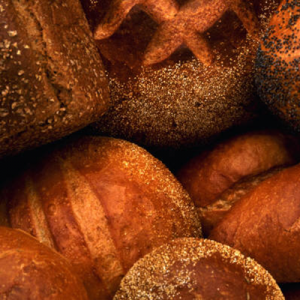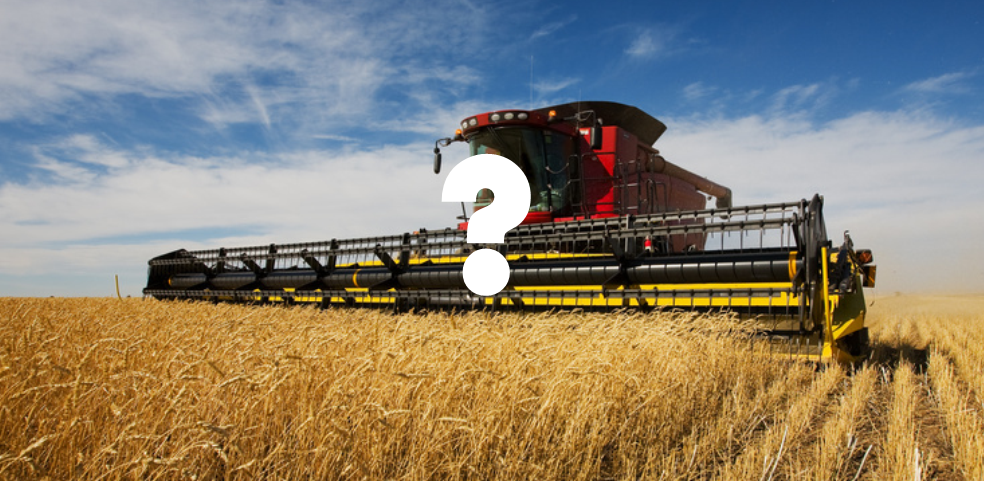You are probably guessing that this is a post about gluten, but I’m not going to cover the (many) problems with gluten here because I have covered that elsewhere: What is Gluten.
What I want to talk about here are the other problems with wheat that will hopefully add fuel to your wish to move beyond this grain.
Wheat has changed dramatically from the time when it was a wild grain to today. We know this because we have found grains with ancient human civilizations and they look nothing like modern wheat. The most dramatic evidence came from the so-called Iceman who not only was carrying an ancient grain called Einkorn, but also his last meal was Einkorn.
When you look at the difference between ancient grains and the genetically modified modern wheat, you see dramatic differences. Not only do the look different (click here to see a photo), but modern wheat is genetically complex compared to ancient grains. Wheat was genetically engineered from only 14 chromosomes to 42. This was done to make wheat more resistant to drought, have higher protein and to be able to run through machinery better. The results are a higher amount of gluten (and, yes that is a huge problem) but it also has a higher amount of Lectins.
Lectins
Lectins are found in almost all foods, but they are especially high in grains, legumes (beans), seeds, nuts, and nightshade plants; they are also high in nut oils and especially high in genetically modified organisms (for reasons you will understand soon).
Technically speaking, lectins are proteins that bind to sugars. While that may not sound very ominous, it has huge implications to your long-term health. The protein lectins in bread, donuts, cereals and other grains that you eat are going to bind to something as they go through your digestive tract and what the lectins bind to are the cells that line your digestive tract. This also may not seem to be a big deal: lectins binding to your digestive tract… but it is. When that binding takes place, your body considers it an attack and releases inflammatory chemicals causing overall body inflammation.
What scientists are beginning to think is that lectins are a form of defense for the plant. If you eat a lot of a plant that contains lectins then you will get a tummy ache and then you will avoid that plant in the future. While lectins are not as active as, say, a rattle on a snake, lectins are built into plants to help them survive and reproduce.
The crazy thing is that when scientists are looking for ways to make plants more resistant to pests, they are generally looking to up the lectin content of that food. When scientists genetically modify a plant, especially those designed to increase pest resistance, they are increasing the amount of lectins in that food. These so-called Genetically Modified Organisms (GMOs) are good for the farmer and agriculture business, but not so good for you. Consuming GMOs is putting even more lectins in contact with your body.
Your Gut Pays the Price
Anywhere from mild irritation, to digestive upset, to full-blown diseases such as Crohn’s Disease’s, irritable bowel and others can be blamed on lectin protein/digestive tract binding. The problem with consuming foods with lectins (they are impossible to avoid altogether) is that they destroy the integrity of your gut. This can lead to a condition called “Leaky Gut Syndrome”. While I won’t go into all the problems associated with leaky gut here, the end result is more inflammation, which, in turn, leads to more leaky gut, which leads to more leaky gut, which (…you get the idea).
In case you are unaware, inflammation is what many scientists would agree is at the bottom of most of the diseases you are likely to get during your lifetime: Heart disease, cancer, diabetes, Alzheimer’s, arthritis, asthma and even weight gain can all be associated with inflammation.
Lower Your Lectin Exposure
It appears that some people are more sensitive to lectins than others, but it is in all of our best interests to avoid exposure to lectins as much as possible.
The easiest way to reduce your lectin exposure by simply avoiding grains altogether. Lectins can also be lowered by fermenting, soaking, sprouting.
Another great way to reduce your exposure to lectins is to rotate your foods. We all tend to get stuck in ruts and eat the same foods over and over, but this will increase your exposure to lectins. You can also try Einkorn and Spelt.
Lectins give us all another good reason to avoid all grains.















